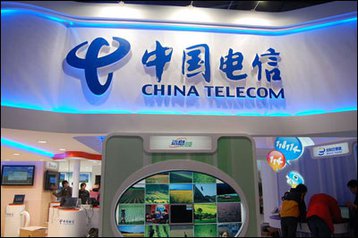State-owned Chinese telecom firms are reportedly working on the development of a $500 million subsea cable network project to rival a similar US-backed system.
According to Reuters, the project would link Asia, the Middle East, and Europe together, much like the US-backed Sea-Me-We-6 cable, as tensions between the US and China grow.
Citing four sources, Reuters revealed that China's three main telecom operators, China Telecom, China Mobile, and China Unicom are working together to map out 'one of the world's most advanced and far-reaching subsea cable networks.'
This potential project comes shortly after China Telecom and China Mobile withdrew their involvement in the South East Asia-Middle East-West Europe 6 (Sea-Me-We 6) submarine cable project.
The reported reason for China's withdrawal from the Sea-Me-We 6 cable was due to US company SubCom being awarded a contract to build the cable, rather than Hengtong Marine, China's biggest provider in the sector. Hengtong acquired a majority stake in Huawei Marine Networks in 2019, after US sanctions forced a sale.
It was a blow for the project, which isn't due to go live until 2025, with the two operators combining to invest 20 percent into the cable, with the overall cable set to cost $500 million.
But now it appears the Chinese are putting their money elsewhere to rival the cable with its own called EMA (Europe-Middle East-Asia).
This proposed cable will reportedly link Hong Kong to China’s island province of Hainan, before linking Singapore, Pakistan, Saudi Arabia, Egypt, and France.
Significantly, this cable would be manufactured by China's HMN Technologies, which was previously majority-owned by Huawei before Hengtong acquired its majority stake.
The Chinese state would provide subsidies to Hengtong for the build-out of the cable, said the sources, while the cable is expected to be online by the end of 2025, roughly in line with the Sea-Me-We 6 project.
None of the operators, nor Hengtong, have commented publicly on the reports so far.
Last month, China was reported to be blocking projects to lay and maintain subsea Internet cables through the South China Sea, with the Financial Times reporting at the time that Beijing is keen to command more control over the infrastructure transmitting the world's data.
It's a stance that has likely been fueled by tensions with the US, with the country operating a tougher stance on the permit to operate outside its internationally recognized international waters has reportedly delayed the SJC2 cable.
Subsea cables - the new battleground in China vs US tech war
As more than 95 percent of all international data Internet traffic is carried by undersea cables, the projects are of national importance.
The new cable follows rising geopolitical tensions between China and the US, with the two countries butting heads on numerous occasions in the past.
In 2021, a subsea cable set to connect the Pacific Island nations was scrapped after the US government warned that the involvement of Chinese companies could pose a security threat.
At the time, the World Bank-led project declined to award a contract for the East Micronesia Cable rather than let it go to Chinese cable company HMN (Huawei Marine Networks) Technologies.
Facebook (now Meta) also pulled out from the HKA project to build a submarine cable between California, Hong Kong, and Taiwan, as the US technology company felt pressure from the US.
“Due to ongoing concerns from the US government about direct communications links between the United States and Hong Kong, we have decided to withdraw our FCC application,” a Meta spokesperson said in a statement at the time about the planned HKA cable.
Scrutiny around Hong Kong has increased as the Chinese government steadily erodes the region's autonomy, and enacts increasingly restrictive surveillance and data laws, which has threatened the numerous tech companies that have opened data centers and offered services in the region.
In 2020, the White House set up 'Team Telecom' to evaluate foreign participation in US telecom networks. In June 2020, the team recommended that the FCC deny the 11,800km Pacific Light Cable Network cable extension to Hong Kong, the first direct US-Hong Kong cable.
In 2021, the Department of Justice group recommended approving a Google and Meta/Facebook cable between the US and Asia, but without links to Hong Kong.
Another point of concern was that, when the cable was first announced in 2016, the largest backer of the cable was Chinese-based Pacific Light Data Communications Co.
After some discussions, Google and Meta agreed that the PLDC will have restricted access to the infrastructure and information, and leave the Hong Kong section of the cable unused.


